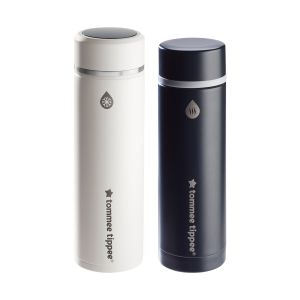
This is a demo store. No orders will be fulfilled.
Subscription orders can be cancelled at anytime. Free delivery on all subsequent subscription orders. Find out more about subscriptions.
They’re easy and fuss free
Your products are automatically sent to you
You save up to 10% when you sign up for a subscription
You can cancel at any time
Postpartum breast engorgement is common in people who have had a baby and are breastfeeding. It���s one of the many physical changes your body goes through after giving birth.
We've written this guide to explain why breast engorgement happens and to help you learn how to relieve the uncomfortable symptoms that come with it.
Breast engorgement happens when the breast becomes overly full of breast milk. This can lead to swelling and inflammation caused by increased milk supply and blood flow.
It can be very uncomfortable, and if your boobs are engorged, they may feel painful, hard, and tight, and breast milk may leak from your nipples. Other symptoms of breast engorgement include:
Breast engorgement is usually triggered when the pregnancy hormones oestrogen and progesterone drop from the moment your placenta is delivered after the birth of your baby. From that moment, prolactin (the hormone that tells your boobs to make breast milk) begins to kick in.
Within three or four days post-birth, your breasts go through different stages of producing milk, including colostrum to making transitional, and then mature milk. At the same time, blood flows to your breasts to help keep things moving. This fast-paced process is sometimes referred to as your breast milk coming in, and results in feelings of intense fullness, swelling, or pressure in the boobs, otherwise known as breast engorgement.
There are several other reasons why breasts can become engorged, including if:
Although breast engorgement can be uncomfortable and it can take a few days for your milk supply to match your baby's needs, it's important to note that the symptoms should gradually ease as you breastfeed or express milk from your breast.
While there���s no set time when breast engorgement will subside, the worst of engorgement usually comes soon after birth, and if you're breastfeeding, it should ease within two to three days. But it's important to note that it can reoccur for as long as you're breastfeeding or pumping.
If you're not breastfeeding your baby or using a breast pump to express, the symptoms of breast engorgement should pass within a few days.
Luckily engorgement is temporary and there are lots of things you can do to relieve it. The following tips may help ease your discomfort.
For a couple of days after birth, your breasts will start to make milk even if you���re not breastfeeding. Engorgement can happen in this early stage and typically will get better within several days. Eventually, your body will stop making breast milk if you���re not pumping or feeding, although this can take several weeks.
In the meantime, you can try these tips to help relieve your discomfort:
Sometimes, you may find that your breasts become overly full very fast. While this sounds like a good thing when you have a hungry baby, it can make it difficult for them to latch. To help you can try:
As we've covered, breast engorgement is common (especially in the first few days after giving birth to your baby). But there are ways to reduce the chances of it happening later in your breastfeeding journey:
Overly full breasts may not sound risky, but they can lead to uncomfortable clogged ducts and a painful condition known as mastitis.
Leaking can also occur if your boobs are overly full, which may not be a health risk but can be inconvenient and cause discomfort.
In rare cases, engorgement can get so bad that breast milk isn���t able to flow at all, as the breast changes shape and the milk ducts become so narrow that nothing can get through.
If you've followed the tips above but are still struggling to relieve the symptoms of breast engorgement yourself, don���t hesitate to ask your midwife, health visitor or Lactation Consultant for advice and support.
Engorgement can happen whenever you decide to stop breastfeeding, so it���s best to slowly wean your baby off breastfeeding to avoid an oversupply of breast milk.
You can also express a little between feeds, space out feeds, use ice packs regularly on your breasts, and avoid hot showers.